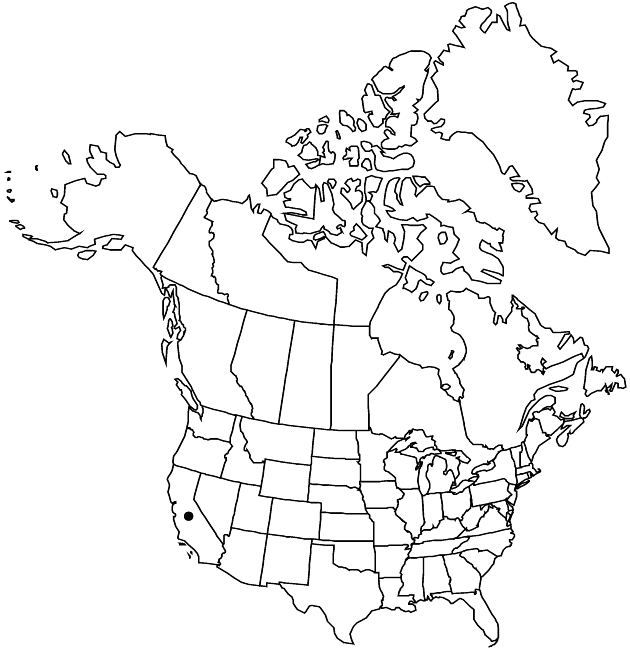Stebbinsoseris decipiens
Amer. J. Bot. 78: 1025. 1991.
Peduncles 15–60 cm. Involucres 6–19 mm. Florets 10–80 (–100); corollas yellow. Cypselae brown to purplish, narrowly truncate-fusiform, 5–8 mm, each filled by embryo or no more than distal 0.5 mm vacant, apices not enlarged at bases of pappi; pappi 7–10 mm, scale bodies 3–5 mm, faces glabrous, aristae 4–5 mm. 2n = 36.
Phenology: Flowering Apr–May.
Habitat: Sandy, shale, or serpentine soils, grasslands, coastal scrub, chaparral, closed-cone pine woods, roadsides
Elevation: 10–500 m
Discussion
Of conservation concern.
Morphologic and molecular evidence (K. L. Chambers 1955; C. Irmler et al. 1982; R. S. Wallace and R. K. Jansen 1990) proves that Stebbinsoseris decipiens is an allopolyploid derivative of the hybrid Microseris bigelovii × Uropappus lindleyi. It occurs in a limited area of central coastal California where the parental taxa are sympatric. Diploid hybrids between the parents, produced experimentally (Chambers), had irregular meiosis and were completely seed-sterile. The species is included in Inventory of Rare and Endangered Plants of California, ed. 6 (D. P. Tibor 2001).
Lower Taxa
"fine" is not a number.
